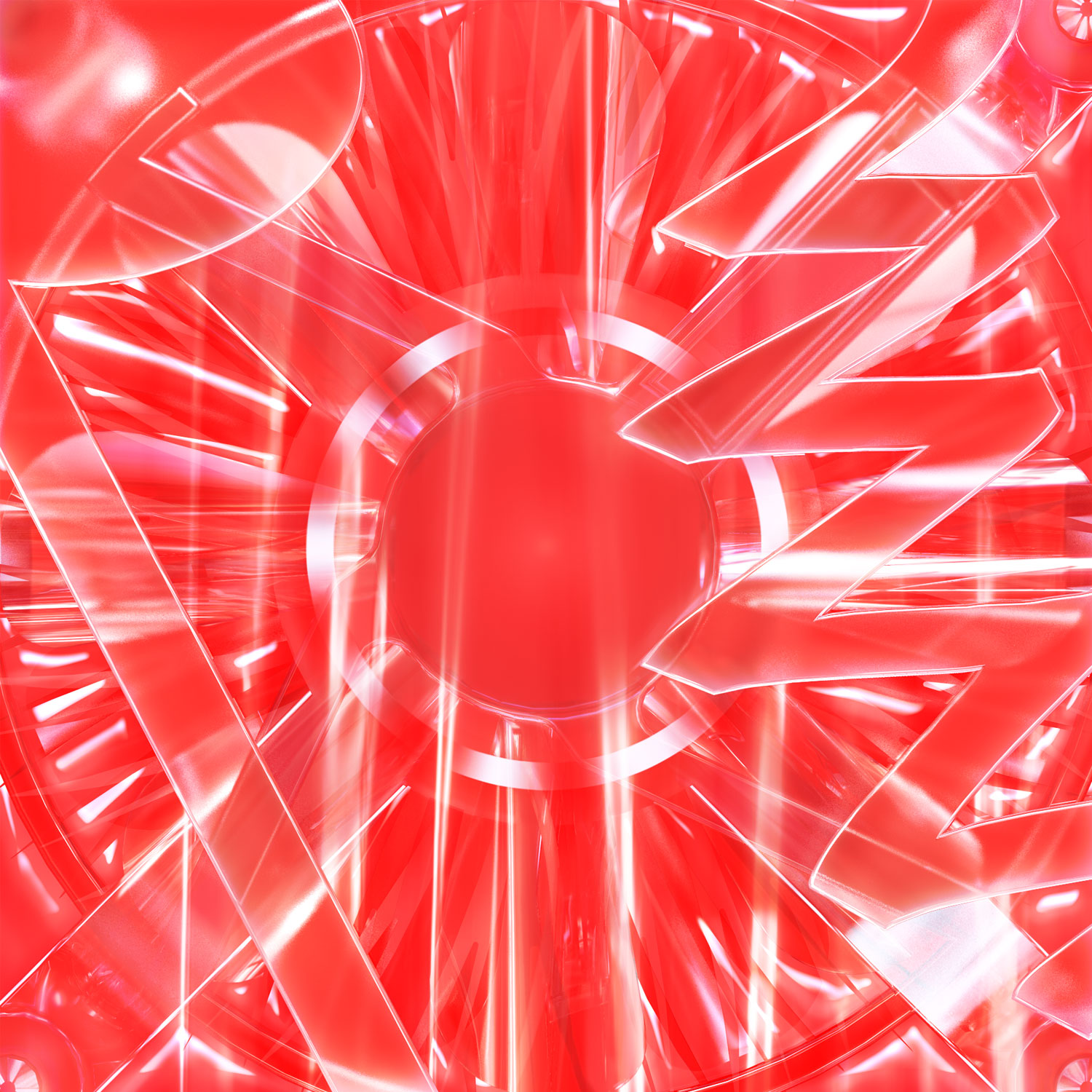The strangest thing about the PC Music dance collective is how little dancing is actually done when it’s played in the club. This was most apparent to me at Pop Cube, last year’s Red Bull Music Academy event devoted to the label and subgenre–as the squiggly electronica pounded from speakers, even the most devoted dancer in the room could only muster a head nod or half-swivel. Not even the power of the piles of nostalgia invoked—’90s Eurodance, TRL aesthetics, the gleeful nihilism of happy hardcore–could engage the crowd on that primal level.
Maybe it was just that the room was teeming with white people, offstage and on. Maybe the music–which is so aggressively bright that it’s the sonic equivalent of staring at a fluorescent light—just couldn’t galvanize them. Maybe they were taking it in, as the night seemed devoted to performance parody or tribute—Hannah Diamond as a one-woman Spice Girls, QT hawking PC Music’s energy drink on Red Bull’s turf—and the music was incidental to that, piped in at a remove. Ideas are hard things to dance to.
PC Music, after all, offers so much to process that a completely reasonable IRL reaction is to stand staring at it, mouth agape. About two years ago, though, PC Music was so vociferously debated among music critics that its divisiveness was noted in virtually each of the dozens of thinkpieces it inspired. The hyper new form, with all the soul of polyurethane and an open, self-conscious interest in consumerism, was either an “incredibly important thing to happen to pop music,” per The Guardian, or “a vapid art project by a handful of rich kids (mostly male, with female avatars btw) that’s diluting the club pool,” according to the producer Lotic.
The discussion has died down considerably since PC Music’s first year under scrutiny, and yet the label keeps going, in increasingly mainstream ways. They now have a partnership with Columbia Records, PC Music boss A.G. Cook’s has a role as Charli XCX’s creative director, and affiliate SOPHIE co-produced Madonna’s “Bitch, I’m Madonna.” The soaring collaboration between singer Carly Rae Jepsen and PC Music staple Danny L Harle, “Super Natural,” is a highlight of the label’s second compilation, the newly released PC Music Vol. 2.
Despite these high-profile gigs for those at the helm, little has materialized in terms of actual pop success. The output of PC Music continues to underline what seems to be its most basic principle—to make what Cook once described as, “amateur music that is also potentially very slick, where the difference between bedroom and professional studio production can be very ambiguous.” But it has yet to “make something stick culturally” on any substantial level, as Cook told Rolling Stone he wished to do last year. (For this piece, SPIN was offered an interview with Cook. The offer was rescinded once we mentioned we’d like to discuss the “critical ideas” behind the collective and this compilation.) In practice, like most pop music, the collective continues to assert an uncanny valley projection of real life.
They are trying to remain grounded, though. The work on PC Music Vol. 2 is more mature, less obnoxious, and much more deserving of the early hype PC Music received. The comp hasn’t lost its neon sheen, just found better targets for the spotlight; the songs feel less like short slapstick pranks at listeners’ expense and more like … actual songs. The evident influences are tempered by wonkiness in rhythm or delivery. One particular quirk is an allergy to polyrhythms (the “tsk” in the typical “boom-tsk” of house percussion), making the songs feel rhythmically stark. Take “Super Natural,” for example, where beats, hand claps, and screamingly dense Eurodance keyboards are all pulsing at you as one. Jepsen’s ginger delivery, one that feels cooed onto your neck, makes the song both lovely and threatening of an assault as a result.
The endlessly ascending nature of many of these songs bespeaks a blunt manipulation. These tracks are thrillers, and the devices that make them so are akin to a surprise scare in a horror movie. (Cook’s “Superstar” is the most telling example.) These tropes are forgiven when they actually work, and are glaring when they don’t. Hannah Diamond has two tracks, with “Fade Away” being too catchy to be anything but adored, even when she’s maxed out her range and is wheezing through her nose and/or Auto-Tune. The other, “Hi,” is resplendent in Diamond’s winking pop persona, which transforms the inherent banalities of media-trained stars into aesthetic. (“I absolutely adore retouching,” Diamond said in the same Guardian piece from last year. “I spend all day doing it.”) Singing with note-for-note precision to a synth melody about wanting to say hello to someone is sort of funny in concept, but an overt display of vapidity does not undo its fundamental, purposeful flatness. It’s like drawing a pimple on a pimple.
At its best, PC Music Vol. 2 doesn’t scan as commentary on pop, as the label’s output perhaps did a few years ago—it seems more organically in conversation with the form. These songs say less about what pop is than what it could be, and its revisions are welcome—there’s a sense of dynamic range that’s missing from so much highly compressed EDM. Even if the percussion schemes are often rudimentary, the stuff knocks more than not. “Only You,” which Cook produced for Chinese pop star Chris Lee, sounds like some weird younger-brother offshoot of a track by DJ Mustard, the man who helped infuse contemporary pop with some space to breathe.
Surveying this compilation, it’s revealed that the closer the songs within come to functioning as conventional pop music, the better it is. Harle’s “Broken Flowers,” owes equally to MK and Snap, churning an increasingly surreal vocal loop, thwacking you in the head and then grinding down like Eric Nies is presiding over its broadcast. That propulsive track, which made it onto Radio 1 this year, appears on this comp but is more than two years old. It was one of the songs repeatedly discussed during the initial flare-up over PC Music in 2014–paradoxically, it was easy to miss at the time, dwarfed by all the chatter. It was just a great house track, and that’s all it ever needed to be. Now that press and pretension aren’t drowning out the music, it seems that the message of PC Music has been remastered, and it’s never sounded sharper.
Rich Juzwiak is a senior writer at Jezebel, and has written for Gawker, Interview, The Washington Post, and New York.





